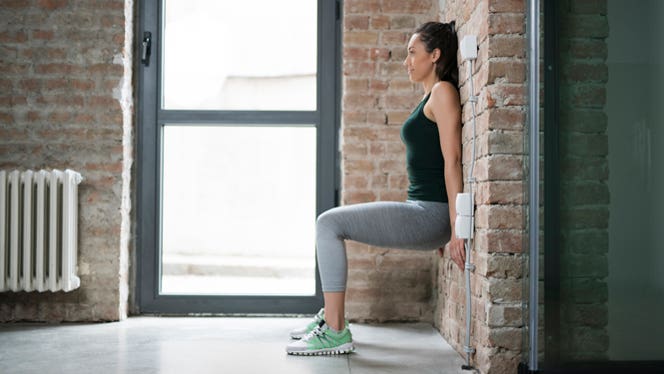By Matt Frazier,
Last Updated:It’s hard to believe that just 10 years ago, “plant-based athlete” sounded like one big oxymoron.
But thanks to the stories of dozens of high-profile, elite athletes turning to plant-based diets for a performance advantage in recent years—including Olympic medalists, world record holders, and even the occasional mainstream superstar—the myth that plant-based diets don’t work for sports has finally been uprooted.
But why do whole plant foods work so well for everything from endurance sports to powerlifting? Mainly, it’s because their nutrient density and anti-inflammatory properties—the same properties that make them so protective and even disease-reversing in the long term—make them ideally suited for fueling and repairing your body after workouts.
Indeed, “faster recovery” is what just about every elite athlete who chooses this diet cites as the primary benefit to his or her performance.
And that’s been exactly my experience. When I began eating a plant-based diet eight years ago, I did so for ethical reasons, all but assuming that it would pose a serious a challenge to my marathon training. But when I qualified for the Boston Marathon just six months after making the transition, I knew I was onto something.
Since then, I’ve run many longer races, including several 50-milers and a 100-mile ultramarathon, and I haven’t looked back (and crucially, I’ve stayed almost entirely injury-free).
These days, there’s little doubt that a plant-based diet and fitness can go hand-in-hand. So if you're already eating a plant-based diet, how do you add fitness to your healthy lifestyle?
Here are five of the most important tips I can offer:
1. Start small.
As with any endeavor (just like when you started eating plant-based, I bet!), it’s tempting to dive in and really go for it. But when it comes to fitness, I’d advise against taking on too much, too soon.
A mountain of habit-change research shows that most people are more likely to make changes last when they minimize the strain on their willpower. Think of willpower like a muscle: It can grow and strengthen over time, but only if you “train” it.
So instead of committing to a full-on fitness program right from the get-go—say, a weekly program of three gym workouts and three 30- to 45-minute cardio sessions—what if you started by committing to a five-minute jog (or jog-walk) each day? If you find yourself procrastinating on even that, make it two minutes.
Only after you’ve put together a string of these tiny “wins” should you let yourself increase the duration. And even though you won’t notice many physical benefits when your exercise volume is so small, with each little run you’ll be changing your brain, adding a fiber to what will eventually become a cable, a habit that's automatic—even once the duration and intensity of your workouts is much greater.
Best of all, you'll be doing so without excessive pain or effort, which will keep you in the game while you're learning it.
2. You might need more calories (but not just protein)!
The belief that athletes need more protein has persisted for decades, passed down from coach to athlete as common knowledge not to be questioned.
Thankfully, the recent successes of plant-based athletes have given us lots of ammunition with which to question it.
While the protein myth isn’t going to disappear overnight, many plant-based doctors, coaches, and dietitians now suggest that although it's true that athletes need more calories to support their activity levels than sedentary individuals do, increasing those calories with whole foods automatically increases your protein intake (and total carbohydrate and fat intake, too).
For most people, this happens without having to think about it: Listen to your body’s hunger signals, and you’ll likely find yourself eating slightly more of the same whole plant foods to support your new athletic pursuits.
If, however, you find yourself struggling to keep weight on, then focus on calorically dense whole plant foods: sweet potatoes, beans, avocados, nuts, and seeds are favorites of plant-based athletes who want to pack in the calories without sacrificing long-term health by eating processed powders or sports nutrition products.
3. Fuel your workouts.
If you’re just getting started with fitness, you won’t need to take in any extra calories for most of your workouts. But once the intensity increases, and especially if the duration of your workouts extends past an hour or so, you’ll find you perform better and get more from your workout if you eat something to replace the fuel your body burns through as you exercise.
So for those more intense workouts, aim to eat a few pieces of fruit (and possibly more, if your energy runs low near the end of your workouts) in the hour before you start. For very long workouts, like a distance run in marathon training, you should eat a larger, starchier meal (oatmeal or whole-grain pancakes, for example) several hours earlier.
During a workout, whole medjool dates (with the pits removed and replaced with a Brazil nut) are one of my favorite sources of quick, whole-food calories. Experiment to find out what works well for you and what your body tolerates while it's in motion.
As your workouts get longer and more intense, you'll also want to make sure you're giving your body the energy it needs to recover. A whole-grain pasta dish with lentils or veggies, Quinoa Primavera, or a hearty salad with beans are examples of great post-workout choices.
4. Hydrate with water.
It’s important to drink fluids to replace the water you lose through sweat. So how much should you drink?
If you're tuned into your body's signals and your workouts aren't too long, you might be fine just drinking to thirst. Otherwise, plan on 4 to 6 ounces of water every 10 to 20 minutes during exercise.
Should you get involved in longer (say, three hours or more) workouts, like those associated with marathon training, or those where you’re sweating an immense amount, you’ll want to add some electrolytes to your water to avoid hyponatremia, a dangerous condition often associated with overhydration. But for typical, shorter workouts, the natural sodium and potassium in many fruits, or a pinch of salt added to a homemade sports drink, will keep your electrolyte levels balanced.
5. Don't neglect recovery!
Remember what so many elite athletes cite as the main benefit of a plant-based diet? That’s right, recovery!
Your anti-inflammatory and nutrient-rich diet of whole plant foods will help you recover quickly, but some of the job is still up to you. Don’t work out hard two days in a row; give your muscles (and that includes your heart!) a chance to recover. Remember, exercise works mostly by tearing down muscle fibers in order to stimulate repair and strengthening, so make sure you allow time for that to happen before hitting the gym, roads, or trails again.
Of course, there’s nothing wrong with doing a light workout almost every day, but if the intensity of your workout creeps beyond the point where you can comfortably carry on a conversation, build in a day of recovery or very light activity before doing another hard one.
Finally, don’t forget sleep! It’s a huge part of the recovery process, and you'll need extra zzzs to make up for your toughest workouts. And hey, you'll have earned it.
Related News
Get Our Best Price On The Forks Meal Planner

Forks Meal Planner takes the guess work out of making nutritious meals the whole family will enjoy.
SAVE $200 ON OUR ULTIMATE COURSE

Join our best-selling course at a new lower price!




